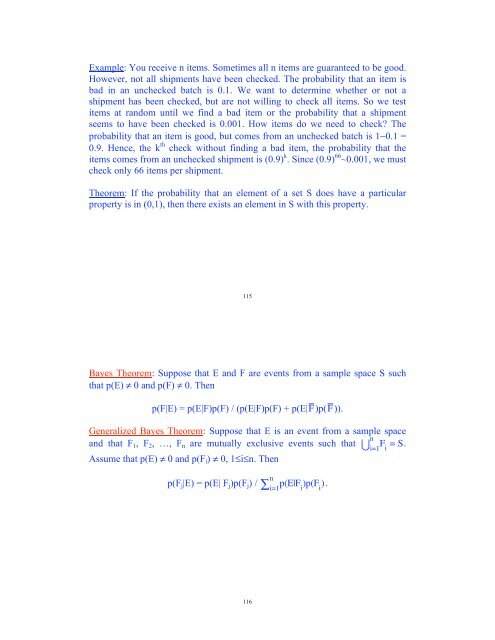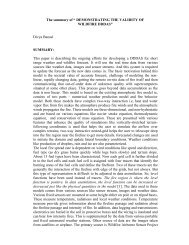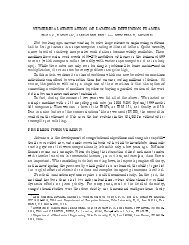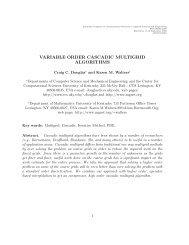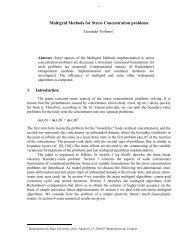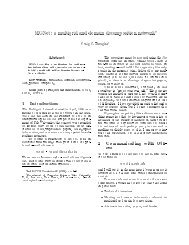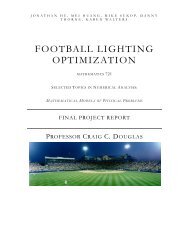Discrete Mathematics University of Kentucky CS 275 Spring ... - MGNet
Discrete Mathematics University of Kentucky CS 275 Spring ... - MGNet
Discrete Mathematics University of Kentucky CS 275 Spring ... - MGNet
You also want an ePaper? Increase the reach of your titles
YUMPU automatically turns print PDFs into web optimized ePapers that Google loves.
Example: You receive n items. Sometimes all n items are guaranteed to be good.<br />
However, not all shipments have been checked. The probability that an item is<br />
bad in an unchecked batch is 0.1. We want to determine whether or not a<br />
shipment has been checked, but are not willing to check all items. So we test<br />
items at random until we find a bad item or the probability that a shipment<br />
seems to have been checked is 0.001. How items do we need to check? The<br />
probability that an item is good, but comes from an unchecked batch is 140.1 =<br />
0.9. Hence, the k th check without finding a bad item, the probability that the<br />
items comes from an unchecked shipment is (0.9) k . Since (0.9) 66 ~0.001, we must<br />
check only 66 items per shipment.<br />
Theorem: If the probability that an element <strong>of</strong> a set S does have a particular<br />
property is in (0,1), then there exists an element in S with this property.<br />
115<br />
Bayes Theorem: Suppose that E and F are events from a sample space S such<br />
that p(E) - 0 and p(F) - 0. Then<br />
p(F|E) = p(E|F)p(F) / (p(E|F)p(F) + p(E|F)p(F)).<br />
Generalized Bayes Theorem: Suppose that E is an event from a sample space<br />
n<br />
and that F 1 , F 2 , …, F n are mutually exclusive events such that ! F i<br />
= S.<br />
i=1<br />
Assume that p(E) - 0 and p(F i ) - 0, 1;i;n. Then<br />
n<br />
i=1<br />
p(F j |E) = p(E| F j )p(F j ) / ! p(E|F i<br />
)p(F i<br />
).<br />
116


